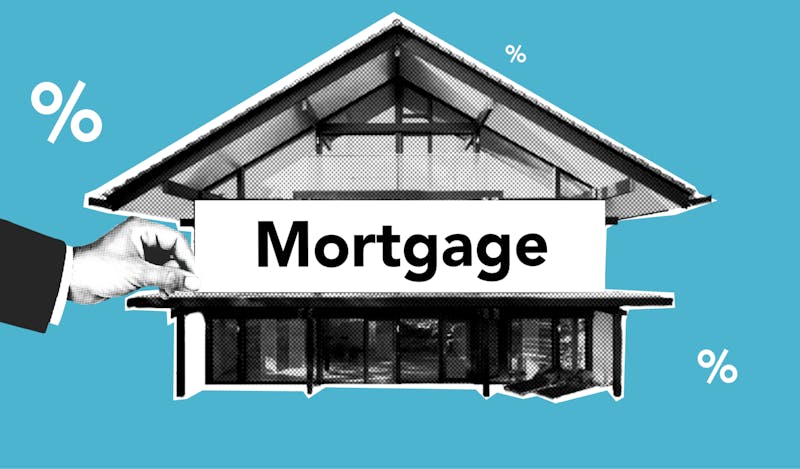Since we’ve already covered mortgage basics let’s now discuss mortgages in Manitoba. Imagine the pristine landscapes and vibrant communities of Manitoba, with their welcoming spirit beckoning you to become a part of their tapestry, as you step closer to homeownership in this picturesque province.
Whether you’re new to the mortgage world or have some prior knowledge, understanding the steps to qualify for a mortgage in Manitoba is vital on your journey to that perfect home. In this comprehensive guide, we’ll explore the nuances of Manitoba mortgage qualification journey. So, let’s unravel the secrets to securing your dream home in this captivating province, where the tranquil beauty of the natural world meets the warmth of its communities.
We’ll answer the most frequently asked questions to give you a better understanding of the mortgage qualification.
How can I qualify for a mortgage in Manitoba?
Qualifying for a mortgage in Manitoba involves a multi-faceted evaluation by Manitoba mortgage lenders. These lenders typically consider your credit score, debt-to-income ratio, and employment stability. The real estate market in Manitoba can also influence your qualifications, as competitive markets may require more robust financial profiles. To enhance your chances, consider following mortgage tips Manitoba experts recommend, such as improving your credit score or reducing existing debt. Other tips for helping you succeed include:
- Understand the Impact of Manitoba’s Seasonal Real Estate Market: Manitoba’s real estate market can be influenced by the seasons. In the spring and summer, more homes are typically listed, but prices may be higher due to increased demand. In contrast, the winter months might offer lower prices, but there could be fewer properties available. Understanding these seasonal variations can help you time your home purchase to align with your budget and preferences.
- Consider Pre-Approval for a Mortgage: Before you start house hunting in Manitoba, consider getting pre-approved for a mortgage. This involves working with a lender to assess your financial situation and determine the maximum loan amount you can secure. Pre-approval not only provides you with a clear budget but also makes you a more attractive buyer in the eyes of sellers.
- Budget for Property-Related Expenses: When purchasing a home in Manitoba, it’s essential to budget for all property-related expenses. Beyond the mortgage payment, consider costs such as property taxes, home insurance, and potential maintenance or renovation expenses. Having a comprehensive budget will help ensure you can comfortably afford your new home and meet your mortgage obligations.
What are the eligibility criteria for mortgages in Manitoba?
Eligibility criteria for mortgages in Manitoba are a critical aspect of the home buying process. While requirements may vary slightly between Manitoba mortgage lenders, there are some common factors that you should be aware of:
- Credit Score: What credit score do I need to get a mortgage in Manitoba?” is a common question among prospective homebuyers. Your credit score plays a significant role in mortgage qualification. To secure the best rates and terms, aim for a credit score above 650, which is often seen as a baseline requirement by Manitoba mortgage lenders. Regularly monitor Manitoba mortgage rate trends to gauge the optimal time for securing your mortgage. Additionally, a higher credit score can help you access low-interest mortgages in Manitoba, saving you money in the long run. To improve your credit score, make sure to pay bills on time, reduce outstanding debts, and avoid late payments or defaults.
- Stable Employment: Lenders want assurance that you have a stable source of income to cover your mortgage payments. Employment stability is crucial, so you’ll need to demonstrate a consistent work history. If you’re self-employed or have irregular income, you may need to provide additional documentation to prove your financial stability.
- Debt-to-Income Ratio: Lenders assess your debt-to-income ratio, which is the percentage of your income that goes toward paying debts. Generally, a lower debt-to-income ratio is preferable, as it indicates that you have more disposable income to meet your mortgage obligations. To improve your debt-to-income ratio, consider paying down existing debts or increasing your income.
- Manitoba Home Buying Requirements: Manitoba has specific regulations and requirements for homebuyers. These may include property-related expenses such as property taxes and insurance. It’s essential to understand and budget for these additional costs when assessing your eligibility for a mortgage.
- Down Payment: While not a strict eligibility requirement, the size of your down payment can influence your mortgage approval and terms. A down payment ranging from 5% to 20% of the property’s purchase price is common in Manitoba. A larger down payment can help you secure a better mortgage rate and potentially avoid additional insurance costs.
- Manitoba Housing Market Analysis: The state of the housing market in Manitoba can also impact your eligibility for a mortgage. In a competitive market, you may need to act quickly and make strong offers to secure the home you desire. Understanding the current market conditions and the availability of housing options is crucial for successful mortgage approval.
To ensure you meet these eligibility criteria, it’s essential to evaluate your financial situation thoroughly. If your credit score is less than ideal, work on improving it by paying down debts and resolving any outstanding issues. Maintaining stable employment and managing your debt responsibly are crucial components of mortgage eligibility. Additionally, staying informed about the Manitoba housing market can help you make strategic decisions when it comes to your home purchase. Consulting with a mortgage broker in Manitoba can be beneficial in navigating the nuances of these eligibility requirements and connecting you with lenders who suit your financial profile.
How does income verification work for Manitoba mortgages?
Manitoba mortgage lenders require proof of stable income, typically through pay stubs, tax returns, or bank statements. Accurate income verification is crucial to ensure you can meet your mortgage payments. Additionally, your employment history plays a vital role, with many lenders looking for a consistent work history of at least two years to establish your financial stability.
Are there government assistance programs for Manitoba mortgages?
Manitoba provides a range of government assistance programs to support first-time homebuyers and make the dream of homeownership more attainable. These programs can significantly alleviate the financial burden associated with buying a home, making it easier for individuals or families to enter the real estate market. Here are some of the key government assistance programs available in Manitoba:
- First-Time Home Buyer’s Tax Credit: This federal program provides a tax credit to first-time homebuyers in Manitoba. It allows you to claim a portion of your home purchase costs as a non-refundable tax credit when you file your annual income tax return. This can result in significant savings, making homeownership more affordable.
- Manitoba Housing Finance Program: Manitoba Housing offers various programs and services to assist low to moderate-income households in finding affordable housing. These programs often include rent subsidies, down payment assistance, and affordable mortgage options. Eligibility criteria for this program may vary, so it’s essential to review the specific details to see if you qualify.
- Land Transfer Tax Rebate: Manitoba offers a land transfer tax rebate to first-time homebuyers. This rebate allows eligible individuals to recover a portion of the land transfer tax they paid upon purchasing a property. The amount of the rebate can vary, so it’s important to check the current regulations and requirements.
- Home Buyer Assistance Program (RAP): The Home Buyer Assistance Program, administered by Manitoba Housing, provides financial assistance to low-income families and individuals to help with down payments and closing costs when purchasing a home. It’s an excellent resource for those who might face financial barriers to homeownership.
- Indigenous Housing Programs: Manitoba offers specific housing programs for Indigenous peoples and communities. These programs aim to improve housing conditions and affordability for Indigenous families in the province. Eligibility requirements for these programs can differ based on the specific program and community.
- Homeownership Programs for Specific Regions: Some regions within Manitoba offer their own homeownership programs, often tailored to the unique needs of the local community. These programs may include grants, subsidies, or low-interest mortgages, so it’s advisable to explore region-specific options if they apply to your situation.
- Energy-Efficient Home Program: This program encourages energy-efficient home construction or renovations. While it might not provide direct financial aid, it can help you reduce long-term homeownership costs by making your home more energy-efficient and sustainable.
What are the down payment rules in Manitoba for homebuyers?
In Manitoba, homebuyers usually need to provide a down payment ranging from 5% to 20% of the property’s purchase price. Consider government assistance programs for Manitoba mortgages, such as the First-Time Home Buyer’s Tax Credit, to help you accumulate the necessary funds.
How does the Manitoba housing market affect mortgage qualification?
The state of the Manitoba housing market can significantly influence your mortgage qualification process. In competitive markets, you may need to act quickly to secure a mortgage and make a strong offer on a property. Staying informed about the Manitoba Housing Market Analysis can give you an advantage in navigating the real estate landscape and securing a favourable mortgage rate.
What are the steps in the Manitoba mortgage application process?
The Manitoba mortgage application process involves several steps, starting with Mortgage pre-approval. During this process, you’ll work with a mortgage broker in Manitoba to assess your financial situation and determine the maximum loan amount you can secure. Then, you’ll move on to house hunting, mortgage approval, and finally, closing the deal. Staying informed about Manitoba mortgage rate trends throughout these steps can help you secure the best possible rates and terms.
What is the average mortgage rate in Manitoba?
As of recent data, the average mortgage rate in Manitoba ranges from 2.5% to 3.5% for a fixed-rate mortgage. Variable rates may vary more, depending on the lenders and the current real estate market in Manitoba.
The Role of Mortgage Brokers in Manitoba’s Homebuying Landscape
“Should I use a mortgage broker in Manitoba?” This question often arises when individuals embark on their homebuying journey. Mortgage brokers serve as valuable assets, providing expert guidance and support throughout the complex process of qualifying for a mortgage in Manitoba. They can connect you with mortgage lenders who offer terms that match your unique financial situation. In addition to their matchmaking role, a mortgage broker can also be your trusted guide, walking you through the intricacies of the mortgage application process, helping you gather the necessary documents, fill out the paperwork, and ensure a smooth application process. Whether you’re a first-time homebuyer or a seasoned homeowner, enlisting the services of a mortgage broker can prove to be a wise decision in navigating the sometimes daunting world of mortgages.
In summary, achieving mortgage eligibility in Manitoba involves understanding crucial factors such as credit scores, income verification, and the local housing market. By following essential tips and utilizing government assistance programs, you can enhance your prospects of homeownership in this picturesque province.



